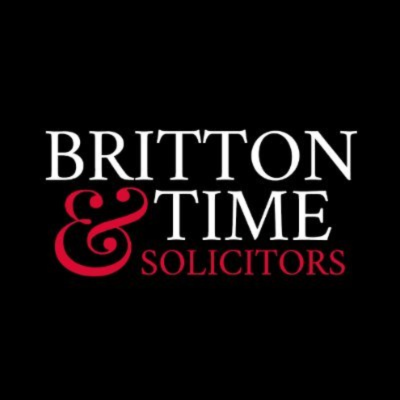
Breakdown:
Book A Consultation
Are settlement agreements confidential in the UK?
Settlement agreements can be complicated legal documents that protect both parties during a dispute. They cover workplace conflicts, business disagreements, and personal legal resolutions. Understanding confidentiality is crucial when navigating these sensitive arrangements. These agreements create a private framework for resolving issues without public exposure. Knowing your rights and obligations can prevent potential legal complications and protect your professional reputation. The landscape of confidentiality is nuanced, with specific rules that govern what can and cannot be shared. If you’re wondering about the intricacies of settlement agreement confidentiality, our next section will explore exactly what confidentiality means in these critical legal documents.
If you need assistance, don’t hesitate to contact us. Alternatively, you can fill in a form through our website to get in touch directly.
What does confidentiality mean in a settlement agreement?
When you’re involved in a legal settlement, confidentiality becomes your shield of protection. It’s like a promise to keep certain information under wraps. Imagine you’ve had a disagreement at work or in business, and you want to resolve it quietly. The confidentiality clause ensures that:
- You can’t discuss the details of the settlement
- The reasons behind the agreement remain private
- Personal and professional reputations stay intact
For example, if a company and an employee reach an agreement about a workplace dispute, they might agree that neither party will tell others what really happened. This could involve hiding the exact amount of money paid or the specific reasons for the dispute.
Think of it like a secret pact that protects both sides. Breaking this agreement could mean serious trouble, including potential legal action and financial penalties. It’s crucial to understand these terms carefully.
Need help navigating the complexities of settlement agreements? Contact our settlement agreement solicitors, who specialise in guiding clients through the legal framework with precision and care.
Are there exceptions to confidentiality clauses?
Despite seemingly watertight agreements, you’re not completely silenced. Certain scenarios legally allow you to break confidentiality without facing consequences. Whistleblowing protections are particularly important, enabling you to report serious misconduct or criminal activities without legal repercussions. For instance, if you discover workplace safety violations or financial fraud, you can disclose this information to appropriate authorities.
- Reporting to law enforcement becomes permissible when public safety is at risk
- Regulatory investigations require full cooperation, overriding confidentiality
- HMRC and financial advisors can receive settlement details for legitimate reporting purposes
Professional guidance from SRA-regulated solicitors is also exempt from confidentiality restrictions. This means you can seek legal advice about your agreement’s terms without breaching contract conditions. Your right to protect yourself and others fundamentally trumps blanket secrecy. For additional resources on whistleblowing rights and protections, visit Protect’s official website, a UK charity dedicated to offering confidential advice on whistleblowing.
Confidentiality and public sector employees
Public sector confidentiality requirements are significantly more complex than private sector agreements. Public sector workers handle sensitive information that directly impacts national interests, with stricter protocols governing information protection. You’ll encounter unique challenges that demand exceptional discretion, such as managing classified government documents or handling sensitive healthcare records.
- Breaches can result in immediate dismissal
- Disciplinary actions may extend beyond workplace consequences
- Legal ramifications can include criminal prosecution
For instance, a local council employee discovering potential fraud must navigate intricate reporting mechanisms, balancing confidentiality with legal obligations to report misconduct. Unlike private sector contracts, public sector confidentiality isn’t merely about protecting commercial interests, but safeguarding broader societal trust.
Navigating these complex requirements requires specialised understanding. Our service can match you with SRA-regulated solicitors who comprehend the nuanced landscape of public sector confidentiality. Submit a lead form, and we’ll connect you with experts who can provide targeted guidance for your specific situation.
Consequences of breaching confidentiality
Breaking confidentiality can devastate your professional and personal life. Imagine accidentally revealing sensitive information about a former employer or client – the repercussions can be swift and severe. You could face immediate legal challenges, including substantial financial penalties that might wipe out your savings.
Potential consequences include:
- Civil litigation resulting in significant monetary damages
- Professional disciplinary proceedings
- Loss of professional credentials
- Permanent damage to your professional reputation
For instance, a healthcare worker who discusses patient details could face immediate dismissal, professional deregistration, and potential criminal charges. Similarly, a financial advisor sharing client investment strategies might trigger massive compensation claims and permanent industry exclusion.
Criminal implications can escalate quickly, potentially leading to fines or even imprisonment for severe breaches. Courts take confidentiality extremely seriously, viewing such violations as fundamental betrayals of professional trust.
If you’re concerned about potential confidentiality risks, submit a lead form, and we’ll connect you with expert SRA-regulated solicitors who can provide targeted guidance.
When can confidentiality agreements be negotiated?
Confidentiality agreements evolve with changing business dynamics, offering strategic opportunities for renegotiation. You might consider adjusting your agreement during significant organisational transitions like company restructuring, mergers, or substantial strategic shifts. Key negotiation scenarios emerge when original contract terms no longer align with current circumstances.
Potential renegotiation triggers include:
- Changes in business ownership
- Technological advancements impacting information protection
- Significant modifications in industry regulations
- Expiration of initial contract duration
The landscape of confidential information protection isn’t static. As your business grows and technology transforms, your confidentiality agreement can adapt. For guidance on updating your agreements, explore our business solicitor services. Understanding these dynamic elements requires careful consideration. Professional legal expertise becomes crucial in navigating complex renegotiation processes while ensuring your interests remain comprehensively protected.
Contact us, and we’ll match you with SRA-regulated solicitors who can provide tailored guidance for your specific confidentiality agreement needs.
Related Articles

Top Reasons to Choose Voluntary Redundancy
Gaining Financial Benefits From Voluntary Redundancy Opportunity For Career Change Taking Control Of Your Future Creating Work Life Balance Escape From Unsatisfying Roles Book A ConsultationGaining Financial Benefits from Voluntary Redundancy When your company...
Join Our Newsletter
Pregnant Again During Maternity Leave – What Now?
Pregnant During Maternity Leave What Does Being Pregnant During Maternity Leave Mean? Are You Entitled To Another Maternity Leave? Maternity Pay: Can You Claim It Again Timing Your New Maternity Leave Book A ConsultationPregnant During Maternity Leave Pregnancy during...
Understanding NHS Voluntary Redundancy
Nhs Voluntary Redundancy Eligibility Criteria For Nhs Voluntary Redundancy How Nhs Voluntary Redundancy Payments Are Calculated What Happens To Your Nhs Pension After Redundancy Differences Between Voluntary And Compulsory Redundancy Other Options Besides Nhs...
Redundancy Agreements: How to Secure Fair Treatment
What Is A Redundancy Agreement? When Are Redundancy Agreements Used? Legal Basis For Redundancy Agreements In The Uk Key Elements Of A Redundancy Agreement Difference Between A Redundancy Agreement And A Settlement Agreement Voluntary Vs Compulsory Redundancy...
Understanding UK Shared Parental Leave & Pay
Understanding Shared Parental Leave And Pay Eligibility Criteria For Shared Parental Leave And Pay How Shared Parental Leave And Pay Works Steps To Apply For Shared Parental Leave And Pay How To Claim Shared Parental Pay Tips For Managing Shared Parental Leave With...








